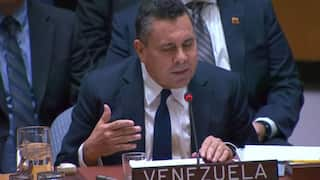Neighbourhood Watch: Spymaster Asim Munir Takes Pakistan Army Charge. Why It Doesn't Matter For India
Unlike previous military rulers, who staged coups and assumed power, Gen Kayani and Gen Bajwa preferred to wield authority from behind the curtains. It is to be seen how Gen Asim Munir will function.

General Asim Munir has taken over the command of the world’s sixth powerful army, at a time Pakistan is facing multifarious challenges. As the custodian of over 150 nuclear bombs and the self-appointed arbiter of the democratic polity of his country, the Chief of Army Staff is the most powerful person in Pakistan. Gen Munir has taken over the reins of an over 5-lakh strong army when the country is wading through an unprecedented political and economic crisis.
The Islamic country is also facing serious security challenges from within. In fact, a day before he assumed the charge, the TTP (Tehrik-e-Taliban Pakistan), an aggressive, violent and ultra extremist militant outfit, broke the ceasefire agreement with army and announced nationwide resumption of terrorist attacks. Munir also has to take a view on how to deal with the current security situation not only on its border with Afghanistan, where the TTP is allowed a free run, but also managing the security situation on the 740-km Line of Control (LoC) that divides Kashmir. Since army chiefs have been traditionally presiding over Pakistan’s foreign and security establishments, the international community will be closely observing Gen Munir for his utterances.
Though, constitutionally, the army chief is not mandated to bother about the country’s economy and politics, those occupying the post in Pakistan have since long been interfering in the functioning of the civil administration. In recent times, they have been observed to be controlling the polity of the nation from behind the curtains, without resorting to declaring martial law. Unlike previous military rulers General Ayub Khan, General Yahya Khan, General Zia Ul Haq and General Pervez Musharraf, who staged coups and assumed power, General Parvez Kayani and General Qamar Jawed Bajwa preferred to wield authority from behind the curtains.
The president and the prime minister of Pakistan are reduced as titular heads of the country in current dispensation. An ambitious general, who as the Inter-Service Intelligence (ISI) chief in the past is reported to have guided the Pulwama attack, it is to be seen If General Munir continues to command the Pakistani army with the same mindset. His previous records, especially as the ISI chief, show that he is virulently anti-Indian.
ALSO READ: General Asim Munir Takes Charge As Pakistan's New Army Chief
Gen Munir Has Much To Prove In Pakistan
The strategic community will keep a close watch on his utterances as he has not yet publicly revealed his mind on Pakistan’s troubled relationship with neighbouring Taliban-ruled Afghanistan, and with India with which no General can afford to be adopting a softer line. With deposed PM Imran Khan taking a public stance against the Pakistan Army, Munir has to prove through his deeds that Khan’s allegations are not true or if they are politically motivated. Previously, no Pakistani politician has dared to directly accuse the country’s army of misdeeds, though Pakistani politicians themselves desperately but secretly invite army’s help in retaining power or ascending to the throne. It is an open secret how General Bajwa helped Imran Khan win the last elections and how the same Imran Khan had to leave the PM office when his relations with General Bajwa went sour.
Known as ‘Mullah General’, for his ability to recite the Quran extempore, Munir donned the mantle of dreaded ISI known for spreading terror in India and other neighbourhoods, but was removed from the assignment at the insistence of Imran Khan who wanted a favourite General to lead the army who would assist him in manipulating his way to the second term as PM. In the process, Imran ended up antagonising Bajwa and had to bow out of the PM office.
Though General Munir is the 17th Army Chief since 1947, when Pakistan was born, the country has seen 30 prime ministers so far. This speaks volumes of the troubled military-civil relationships in Pakistan. Gen Munir is known as a close confidant of Bajwa with whom he has served as the director general of military intelligence from December 2016 to October 2018. He was later elevated to the rank of director general, ISI, which he held from October 2018 to June 2019.
In the history of the Pakistan Army, it has been rare for an ISI chief to become the Chief of the Army Staff. Earlier, General Ashfaq Parvez Kayani (from 2008 to 2013), who headed the ISI, got the chance to become the army chief. In fact, General Munir also benefitted from the internal dynamics of Pakistani politics. The officer who was set to retire two days before Bajwa got elevated to the General rank and announced as the army chief for a three-year term.
ALSO READ | Who Is Lt Gen Asim Munir? PM Shehbaz Sharif's Pick For Qamar Bajwa's Successor
Will Munir Toe Bajwa Line On India?
Pakistani analysts accept that Munir was chosen by PM Shahbaz Sharif because of his antagonistic relations with dethroned PM Imran Khan and President Arif Alvi, who actually belongs to Imran’s party PTI and went to Lahore to meet the leader to seek his advice before signing the decree.
As far as India is concerned, it does not matter who assumes the charge of the Pakistani army. After General Zia Ul Haq Islamised the Pakistan Army in the mid-eighties, all Pakistani generals appointed thereafter have come with similar outlook. Munir, who graduated in 1986 from the Officers Training School, Mangla, belongs to the Frontier Force regiment, one of the six infantry regiments of the Pakistan Army.
A General in the Pakistan Army has to prove his strong anti-India credentials. Munir has proved this through his role as the ISI chief in February 2019 when the Pulwama terrorist attacks took place, killing 40 CRPF personnel. In the current political environment, with a strong anti-India narrative prevailing, it would be difficult for Munir to look soft on India. India’s worry is to ensure the fragile peace on LoC continues. If General Munir encourages more terrorists to enter India through Kashmir, he would like to reactivate the cross-LoC firing, as done earlier by Gen Kayani who broke the ceasefire agreement in 2008 signed by the hardliner President General Pervez Musharraf. Though Bajwa at the fag end of his second tenure of three years has started talking of geo-economics and better relations with India, it is not clear if Munir would hold similar view promoted lately by his mentor.
Related Video
India@2047 Summit: Modi Calls for Innovation, Reforms, and National Resolve






































